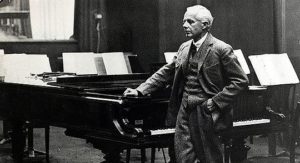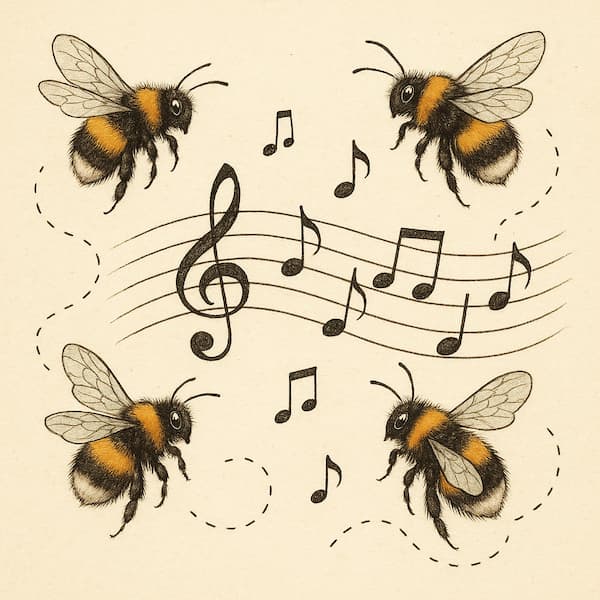
Derek Bermel
America is a land of immigrants and this is just as true of its classical music as its cities. Clarinetist and composer Derek Bermel opens his mind to the musical influences in the world around him and his ears to the musical influences of the world around him. The composer says that his background as a clarinet player makes him tend more ‘the lyrical and the contrapuntal,’ and so we hear in his 2009 work A Shout, a Whisper, and a Trace.
The work was commissioned by the Koussevitzky Music Foundation and is an interesting combination of the sound of New York and the sound of one of New York’s most distinguished immigrant composers, Béla Bartók. Bartók (1881-1945), fled WWII Hungary for New York. His anti-fascist views had made life in Hungary dangerous for him, but before he moved, he made sure his manuscripts were sent out of the country. Life in New York was difficult for Bartók, although he was known in the US as a pianist and an ethnomusicologist for his work on folk song of Hungary, he wasn’t really known as a composer. Hired on a research fellowship by Columbia University, he worked on the university’s Serbian and Croatian folk song collections. Undiagnosed leukemia sapped his strength until it was discovered in 1944, by which time it was too late for remedies. He died in New York on 26 September 1945.

Béla Bartók
Bermel takes many elements of Bartók’s chamber and orchestral music into his piece. The first movement, amerikanizálódik [Americanize], takes a Hungarian folk-song like melody and ‘Americanizes’ it through orchestration, rhythms, and a little bit of jazz. The driving rhythms are disturbed by jazz outbreaks and hymn-like sections, two very American sounds.
Bermel: A Shout, A Whisper, and A Trace: I. amerikanizálódik [Americanize] (Albany Symphony Orchestra; David Alan Miller, cond.)
The second movement, az ejszaka zeneje [the music of the night], takes up one of the most interesting of Bartók’s stylistic developments, ‘night music.’ In his slow movements, Bartók was fond of using eerie sounds to convey sounds of nature and the night. It’s not only about the sound of night, but the feeling of night, loneliness and solitude, all in deep darkness.
Bermel: A Shout, A Whisper, and A Trace: II. az ejszaka zeneje [the music of the night] (Albany Symphony Orchestra; David Alan Miller, cond.)
The final movement, ‘vég’ [end], sees the ghost of Bartók in the streets of New York. We’re both in the 1940s and the anxiety of that era and in modern New York, but seen through ghostly eyes. Air-raid sirens wail and the shivers increase, but calm again in a city far from war and we fade into the night.
Bermel: A Shout, A Whisper, and A Trace: III. ‘vég’ [end] (Albany Symphony Orchestra; David Alan Miller, cond.)
In this work, Bermel gives us a view from today about music of the past. Music that was brought to America and become part of the American soundscape, but that, at the same time, is not of this time.

